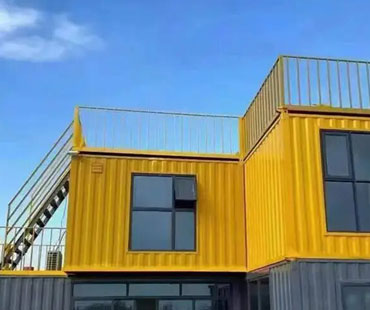In recent years, the pursuit of sustainability has permeated various sectors, with logistics being no exception. The logistics industry is crucial for global trade and supply chain management, but it also significantly contributes to greenhouse gas emissions and environmental degradation. As businesses and governments alike seek to adopt greener practices, the role of containers in promoting sustainable logistics cannot be overstated. This article explores how containers are pivotal in achieving sustainable development goals within the logistics sector.
1.Efficiency in Transportation
One of the primary advantages of using containers in logistics is their ability to enhance transportation efficiency. Standardized container sizes allow for easy stacking and handling, maximizing space on ships, trucks, and trains. This efficiency leads to reduced fuel consumption per unit of cargo transported, minimizing carbon emissions. As shipping companies increasingly adopt larger vessels designed to carry thousands of containers, the economies of scale can significantly lower the environmental impact of transporting goods globally.
2.Intermodal Transportation
Containers facilitate intermodal transportation, allowing goods to be transferred seamlessly between different modes of transport—ships, trucks, and trains—without the need for repacking. This integration streamlines the supply chain and reduces transit times, which can contribute to lower emissions. By optimizing routes and reducing delays, intermodal transportation using containers supports a more sustainable logistics framework.
3.Reduced Packaging Waste
Traditional shipping methods often involve excessive packaging materials, which contribute to environmental waste. Containers provide a durable and reusable solution that minimizes the need for additional packaging. By using standardized containers, companies can reduce their overall material usage and lower their environmental footprint. This shift towards reusable containers not only decreases waste but also promotes a circular economy, where materials are continually repurposed.

4.Energy Efficiency and Innovation
The design and technology of containers have evolved to enhance their energy efficiency. For instance, the development of lightweight materials and aerodynamic designs reduces the energy required for transportation. Additionally, innovations such as smart containers equipped with IoT devices enable real-time tracking and monitoring, optimizing routes and conditions for transportation. These advancements not only improve efficiency but also contribute to lower emissions, aligning with the goals of sustainable development.
5.Promoting Sustainable Practices Across Supply Chains
The adoption of containers has influenced various sectors to implement more sustainable practices. Companies that utilize container shipping are increasingly required to adhere to environmental regulations and standards, fostering a culture of sustainability within their supply chains. By prioritizing eco-friendly practices, businesses can enhance their reputations, attract environmentally conscious consumers, and gain a competitive edge in the market.
6.Supporting Local Economies and Reducing Transportation Distance
The use of containers can also support local economies by encouraging regional production and distribution. By facilitating the movement of goods from local manufacturers to global markets, containers help reduce transportation distances and associated emissions. This local sourcing approach not only promotes sustainability but also strengthens community resilience, providing economic opportunities and fostering sustainable development at the grassroots level.
7.The Future of Green Logistics and Containers
Looking ahead, the role of containers in green logistics will continue to evolve. The logistics industry is increasingly focusing on carbon neutrality and sustainability, prompting innovations in container design and usage. Future developments may include the integration of renewable energy sources, such as solar panels on container ships, and advancements in electric vehicles for ground transport. These innovations will further enhance the efficiency and sustainability of container logistics.
In summary, containers play a vital role in promoting sustainable practices within the logistics industry. Their efficiency in transportation, facilitation of intermodal connections, reduction of packaging waste, and support for local economies underscore their importance in achieving sustainability goals. As the world moves towards a greener future, the continued evolution of container technology and practices will be essential in addressing the environmental challenges facing the logistics sector. Embracing these innovations is not only beneficial for businesses but also for the planet, making containers a cornerstone of sustainable development in logistics.


